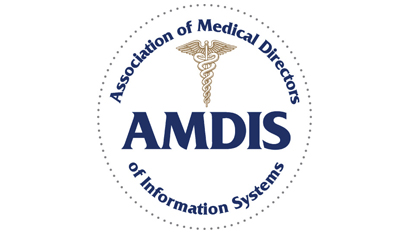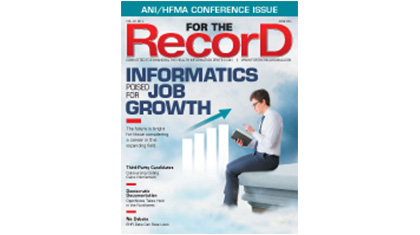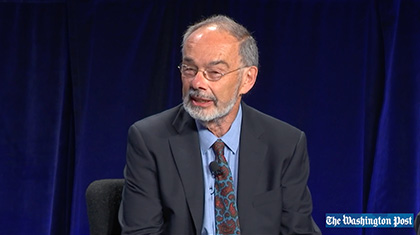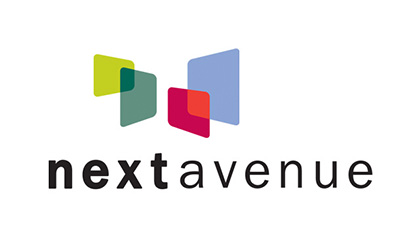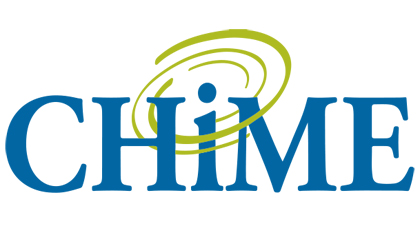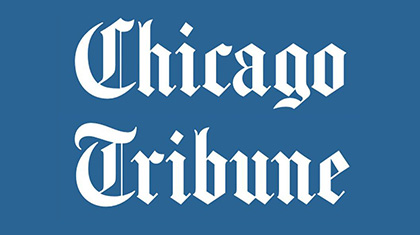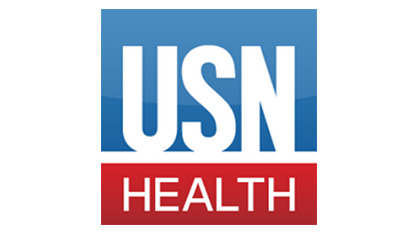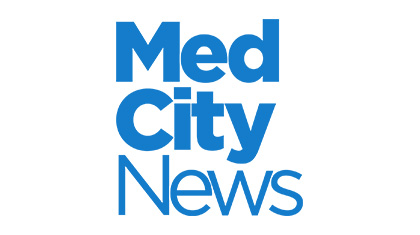Organizations believe a fully transparent medical record is the right thing to do for patients LAKE ALMANOR, CA – The Association of Medical Directors of Information Systems (AMDIS) and OpenNotes have announced a partnership to advance transparency in health care and enhance patient and clinician communication by inviting patients to read and engage with the…
Tom Delbanco
For the RecorD: OpenNotes Takes Hold in the Northwest
There’s no place quite like Portland, Oregon. It’s creative, hip, progressive, and a foodie’s paradise. It needs to be all those things because it rains approximately 160 days each year. Portland’s uniqueness makes it an ideal spot to try out new ideas—even when it comes to medical records, which typically aren’t associated with terms such…
The Washington Post Live – Cracking the Code: Optimizing Health Care
On June 14th at The Washington Post Live event “Cracking the Code: Optimizing Health Care”, lawmakers and health care professionals discussed an emerging health-care model that considers the value of care. They also debated the merits and dangers of health data for patients, industry and regulation. Republican Sen. Bill Cassidy, a longtime physician, argued that…
NextAvenue: Doctors Are Slowly Opening Their Notes to Patients
A new program called OpenNotes helps patients be more engaged Ever wondered what your doctor is saying about you in all of those typed or scribbled notes? You may be able to find out soon, if you can’t already. OpenNotes is a national movement encouraging physicians to share medical records and the observations they record…
CHIME, OpenNotes Partner to Spur Patient Engagement, Support Advances in Precision Medicine
ANN ARBOR, MI, February 25, 2016— The College of Healthcare Information Management Executives (CHIME) and OpenNotes today unveiled a unique partnership to accelerate information sharing between patients and providers. The collaboration, which will help empower patients to become advocates in their care, was announced as part the Obama administration’s Precision Medicine Initiative Summit. “We are…
Chicago Tribune: Doctors see patients taking a greater role in their own care
The practice of medicine has moved away from a paternalistic model toward one of collaboration between doctor and patient. This has happened as the information age, propelled by the Internet, has plunged us into an ocean of health information. In the past, doctors may have been happy with passive patients who followed orders and didn’t…
U.S. News & World Report: Hospitals Are Moving (Slowly) to Electronic Medical Records
by Michael Schroeder Moving hospitals out of paper records and into seamless digital connectivity has been tougher than anyone but hard-core skeptics thought seven years ago, when the federal government began pouring billions of dollars into a push to make electronic medical records the universal standard. Computerization of health care data would quickly get patients’ health information where it needs to go, improving care…
OpenNotes initiative hits 5 million patients (infographic)
The OpenNotes initiative now reaches more than 5 million patients nationwide, according to new data and an infographic released just before the long Labor Day weekend. That covers participants in all Department of Veterans Affairs hospitals nationwide, as well as private organizations in 20 states. OpenNotes started as a pilot in 2010 to give patients…
Patient Access to Online Visit Notes: Perceptions of Doctors and Patients at an Urban HIV/AIDS Clinic
Patients living with HIV/AIDS face large societal and medical challenges. Inviting patients to read their doctors’ visit notes via secure electronic portals may empower patients and improve health. We investigated whether utilization and perceptions about access to doctors’ notes differed among doctors and patients in an HIV/AIDS clinic versus primary care setting. We analyzed pre- and 1-year postintervention data from 99 doctors and 3819 patients. HIV clinic patients did not report differences in perceived risks and benefits compared to primary care clinic patients, however, they were more likely to share notes with friends (33% versus 9%, P = .002), other health professionals (24% versus 8%, P = .03), or another doctor (38% versus 9%, P < .0001). HIV clinic doctors were less likely than primary care doctors to change the level of candor in visit notes (P < .04). Our findings suggest that HIV clinic patients and doctors are ready to share visit notes online.
Forbes: New Poll Shows Two‒Thirds Of Doctors Reluctant To Share Health Data With Patients
The polling question was simple. Should patients have access to their entire medical record ‒ including MD notes, any audio recordings, etc…? For many, the response by over 2,300 physicians came as no real surprise. 49% ‒ Access to all records should only be given on a case‒by‒case basis 34% ‒ Yes, Always 17% ‒…
